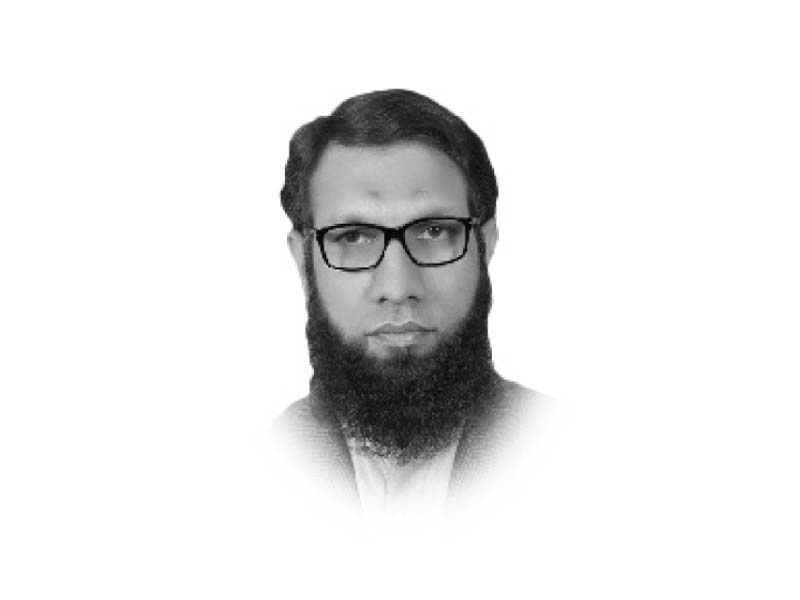
Who should be blamed for the political mess in Pakistan right now? The all-too-known-behind-the-curtain powerful institution? The selfish power hungry Machiavellian politicians? The ambivalent top courts or the unfriendly sluggish bureaucracy? Or we the powerless people? Or the external superpowers that have some real geo-strategic interests in how politics play out in Pakistan? Or is this mess simply the beauty of democracy?
Messier events and places are never beautiful though! What appears on the political horizon on an hourly basis — uniquely devilish most often — can potentially push the country into chaos with irreparable damage to democratic ethos. The ruling party of Imran Khan, having nothing else in its product-line to sell with profit margin, blames previous governments for the mess we are in. The corruption mantra, started well before the 2018 elections, continues until today. What he had promised, moving the mountains and boiling the oceans type of things, have proved to be empty slogans meant for naïve people to buy in bulk.
Why does corruption sell so much and for so long? Because the common man can easily relate to it on a daily basis and that it cannot be easily eliminated. It has its roots in weak institutional structure and cultural heritage. This systemic problem, having practical impact on the quality of state-citizen relationship, gives legitimacy for making governments. In the past, it was the patriotism card that was used to suppress dissenting voices and deny power to the true representatives of people; now it is the corruption stick to bring the opponents to knees.
In our peculiar circumstances, the military, as an institution has not confined itself exclusively to securing geographical borders of Pakistan. As a matter of practical exigency and history, it has taken upon itself the responsibility to act beyond its explicit constitutional role as and when it deemed fit. The institution can best be described as mission-driven rather than rule-bound. This is why the military-civilian relationship has always been in flux punctuated by a period of brief equilibrium or synthesis. The pendulum swings between direct intervention at one end to indirect nudging to temporary neutrality at the other end and back.
Politicians of all sorts — left, right and centre — have one thing in common. They want to rule from Islamabad with their eyes on Rawalpindi for both support and validation. With no democracy within political parties and a poor track record in governance, the civilian supremacy in the form of parliamentary oversight on all state affairs has been weak if not non-existent. The recent phenomenon amply demonstrates how partisan and self-interests overweigh ethical consideration and public interests. What politicians have done in the Senate and the brazen wheeling-dealing they are doing now in the context of no-trust motion against the PM are shameful examples of Machiavellian approach to politics.
Democracy in Pakistan suffers due to external factors too. Pakistan, unfortunately, is neither strong enough to be treated on the basis of sovereign equality nor wise enough to learn lesson from others as well as from its own chequered history. It runs with the hare and hunts with the hounds! The US has its own economic and political predicaments that govern its foreign policy and so are other countries with geo-strategic interests linked to what happens in Pakistan. It has been observed that strong democracy is the last thing that some powerful countries would like to see in Pakistan.
The beauty of democracy lies in systems of check and balance, rule of law, transparency and accountability. It is meant to serve the people today and tomorrow regardless of who they are so long as they fulfil their duties as responsible citizens. Elite capture, in all its forms and manifestations, is a stigma on democracy. Political leaders have more responsibility than others to lay a strong foundation for democracy through consensus as was done in the case of 1973 Constitution despite their political differences.
Published in The Express Tribune, March 20th, 2022.
Like Opinion & Editorial on Facebook, follow @ETOpEd on Twitter to receive all updates on all our daily pieces.

1731583017-0/diddy-(42)1731583017-0-405x300.webp)


1719315628-0/BeFunky-collage-(8)1719315628-0-165x106.webp)








COMMENTS
Comments are moderated and generally will be posted if they are on-topic and not abusive.
For more information, please see our Comments FAQ